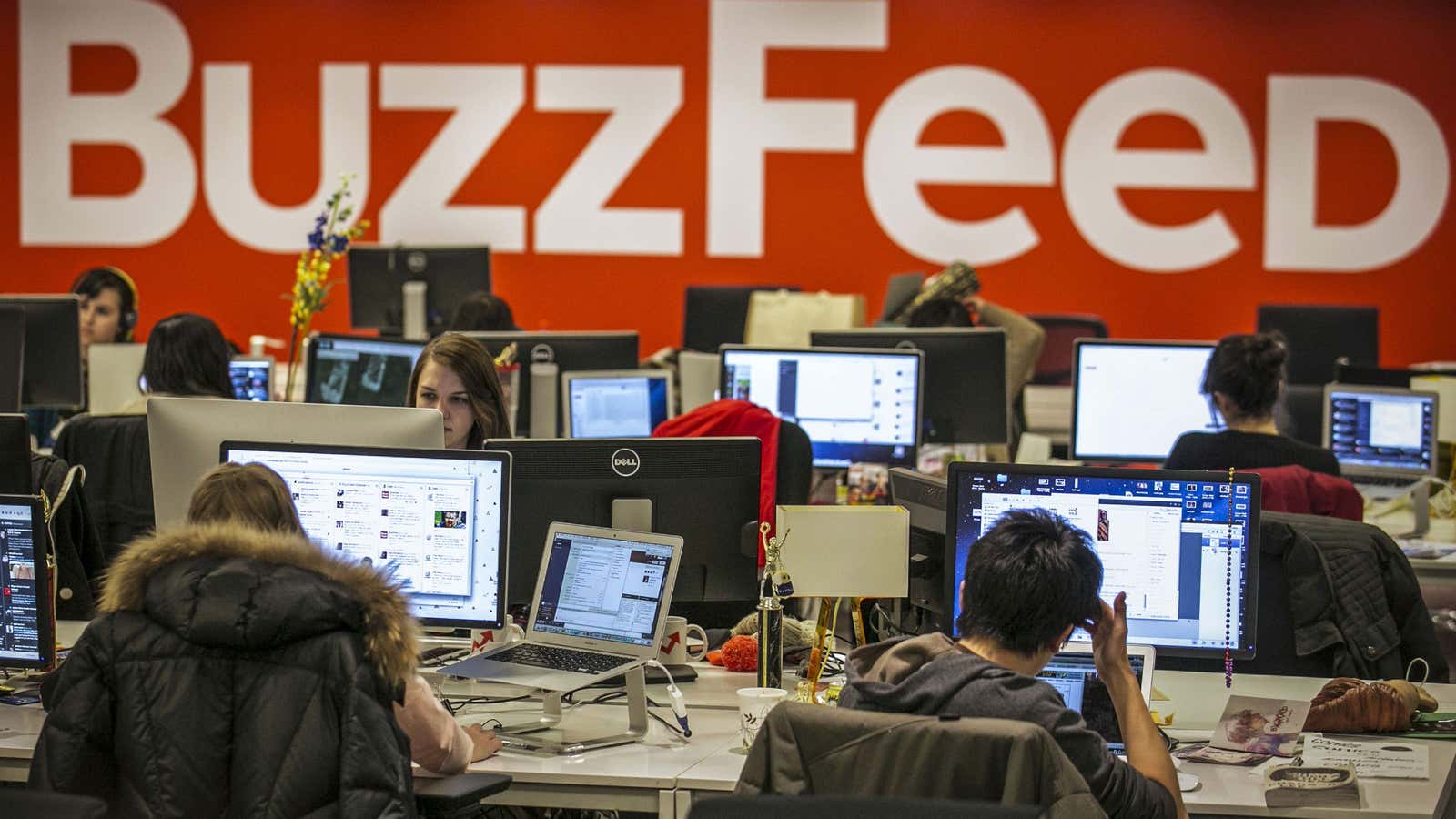It’s no secret that BuzzFeed is on a roll.
The website once known primarily for amassing enormous amounts of traffic through listicles and cat videos, has been breaking huge stories and winning prestigious awards for its journalism, not to mention attracting millions of dollars in venture-capital funding.
But perhaps the surest sign yet that it has arrived as a serious force in media is how, all of a sudden, it seems to have many older media companies rattled.
This past week, at a conference hosted by UBS, which Quartz attended, the CEO of News Corp, Robert Thomson, took aim at the BuzzFeed model.”We are going through a phase of the popularization of so-called journalism, which is a phase,” he said. ”Anyone can attract traffic, but there is trash traffic, and there is real traffic.”
In an otherwise upbeat presentation to investors, Thomson questioned whether advertisers would want to be associated with BuzzFeed’s content. “You go on to BuzzFeed and you’re in a strange place. It’s a really strange place,” he said.
It’s not the first time News Corp has criticized a rival, or an internet company. But Rupert Murdoch’s $9 billion publishing giant (which owns many storied outlets including the Wall Street Journal) isn’t the only media organization that seems to have BuzzFeed on its mind. Gawker Media, which not that long ago was locked in a battle for the soul of the internet with BuzzFeed, announced sweeping organizational changes that seem designed to help it fight back against its rival.
Founder Nick Denton said in a long note to staff last week that Gawker would return to its original mission of blogging, and do “less pandering to the Facebook masses.” (BuzzFeed is considered the first online media outlet to truly harness Facebook and its enormous user base.) ”In my absence, the company ticks along nicely,” Denton wrote, “with the challenge of Buzzfeed and Vox, ticking along nicely is no longer enough.”
And then there’s the new New Republic, which is in a state of upheaval amid fresh digital push. Its CEO insists the publication does not want to become the next Buzzfeed, but also told Politico he thinks it is an “incredible” product.
Andreessen Horowitz partner Chris Dixon, who led a $50 million investment in BuzzFeed earlier this year—that reportedly values the business at $850 million—thinks the company’s internet prowess is being underestimated, and its business model misunderstood.
“BuzzFeed is one of a handful of [media] companies that has really embraced the internet instead of fighting it,” he tells Quartz. For decades, he points out, newspapers mixed lowbrow content like horoscopes and crosswords with more serious reporting.
BuzzFeed was reportedly in talks with Disney about a $1 billion sale last year. But Dixon thinks it has a bright future as an independent company, and its success is showing that journalism can be a viable standalone business.
“One thing we do is go back and look at every era of media,” he says, “and every era there were new large independent media companies created that embraced new technologies. CBS during the radio era, Viacom during the cable-TV era. BuzzFeed is one of the leading contenders to be the incumbent that emerges from this era.”
